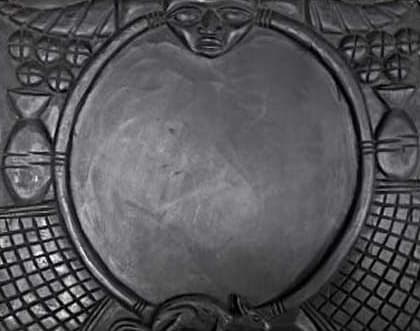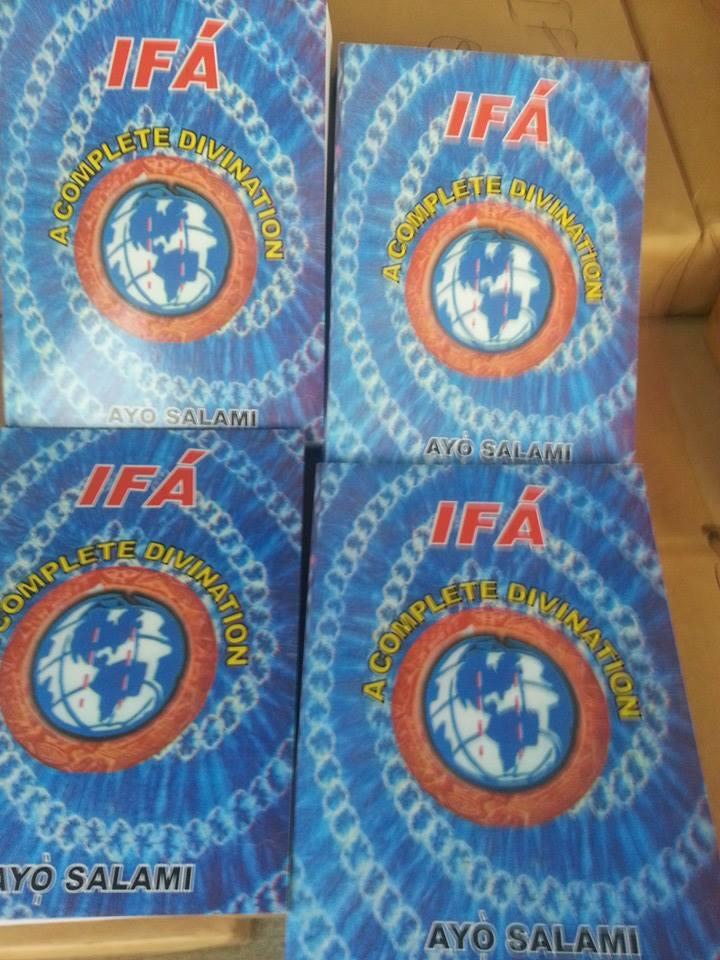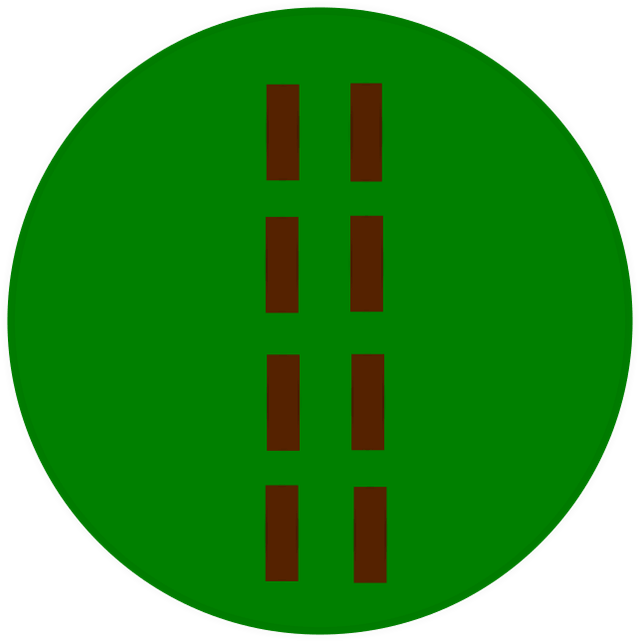Let's learn about theOdù IfáỌ̀sá méjì

Alias :
Description :
This Odù Ifá is the 10th among the 16 major Odù or Ojú Odù (with both legs the same). It is called Ọ̀sá méjì, meaning that both of his legs are Ọ̀sá.
This Odù belongs to the terrestrial mothers, Ìyàmì Òṣòòròngà, and whenever this Odù appears, some respect must be accorded to Ìyàmì during the rendition of this Odù.
Verses of Ọ̀sá Ẹlẹyẹ
Ọ̀SÁ MÉJÌ: It was Òwú at the begining that Òrìsàálá intended to help
Original stanza in YORÙBÁ language
English translation
Ifá says:
Ela Were the spirit of Owu (Cotton)
Cast ifá for Owu
In the day that Cotton was disturbed by the terrestrial people
He was advised to make sacrifice
He complied
The Akitipa is the spirit of home
Gbongbo yakata the outside spirit.
They cast ifá for Ọ̀rúnmìlà
On the day that war of witches came out.
He was advised to make sacrifice
Ọ̀rúnmìlà complied
This is the Òrìsàálá cutlass,
The small cutlass,
My hand o,
This is the Òrìsàálá cutlass.
MORE EXPLANATION ON THIS VERSE
ÒWÚ (Cotton) was the one that visited Ọ̀rúnmìlà for ifá divination so that the people will not be conquered by the witches. Simply because as he bequeath with children, the terrestrial people were killing them.
Ọ̀rúnmìlà advised ÒWÚ to make sacrifice.
They further said that after the sacrifice he should go and make further propitiation to Òrìsàálá with snail and ten yards of white cloth this is the reason why whoever this revelation is given to should not eat dog, because it is forbidden to Osala.
That was how ÒWÚ presented snails and ten yards of white cloth to Osala.
ÒWÚ was enquired by Òrìsàálá to explain the reason behind those presentation. ÒWÚ replied that it is because of his
children being killed by the terrestrial people that you are the only one that can protect him from witches.
Instantly, Òrìsàálá called on his son, Salako, to make announcement to the all and sundry that whether big witch or the smaller one should not be seen killing ÒWÚ people any longer. He said that any witch that kill ÒWÚ will never have rest of mind.
As the witches heard the announcement from Òrìsàálá they were furious and called their own son to also make announcement to everybody that way:
"Olórítoké witches river.
Olórìtokà witches river.
Òrìsà should not fetch from it
For beautification any more..."
It was these rivers that Òrìsà used every five days for the beautification sacrifice.
When Òrìsà heard this pronouncement from the witches, he was surprised that as he made pronouncement, the witches made their own too.
That was how the hunchback, albino and crippled transformed into what they actually are.
When Òrìsà heard this, that those people had being transformed by the terrestrial mothers, he was angry and out of annoyance he went to the river to fight the witches.
On getting to the river, they wages serious war against each other.
Òrìsálá used the machete in his hands to cut the arms, legs etc. That was how Òrìsálá defeated the witches.
The machete used by the deity against the witches is spiritually called (Àdáàsà or Àdá Òrìsà).
The second day after the incident all the world's witches converged to the house of Òrìsà with different songs that went thus:
"If seen Òrìsà we shall swallow him
If seen Sàlàkọ́ he shall be swallowed
If we see Òrìsàwálé we shall kill him"
As Òrìsà was hearing this songs, he went to the place where he kept the machete he used the other time to defeat them. When he discovered that their population is greater than
what he can face, he went out from the other side of the house together with his children.
When he arrived at Egúngún’s house, Egúngún asked him, what was chasing him?
Òrìsà explained everything to him. He had not concluded when heard the song of the witches for the second time. Òrìsà did not take it seriously. During the Òrìsà day of the traditional Yoruba week, he sent his slaves to fetch water (to bath with) into four places. The first one was hunchback, the albino, third one dwarf, while the last one was a crippled.
These four slaves were those Òrìsà used to fetch water for him. When Albino got to the river to fetch water the witches snatched away his container and break it on his head. But before then, Albino was a white person, it was when the calabash was broken on his head that he became Albino.
Similarly, container was also collected from the hunchback and it was broken on his head and hunch was show at both sides, front and back.
And ditto to the remaining men...
This is the reason why we do pay homage to those four people, because they are deities, especially when we want to make a ritual bath for the Iyawo Ifa in the river.
Song: "I pay homage to Hunchback
I pay homage to Crippled
I pay homage to Albino
Home to the Deity
A salute to the Dwarf
Before making a ritual in the river."
"If we see Ọ̀jẹ́dòkun devour him
If we come across Ọ̀jẹ́wálé swallow him up
If Ọ̀jẹ́bùnmi is seen eat him up"
This was how the witches promised to swallow all the children of Egúngún they mentioned.
Both Egúngún and Òrìsà went to inform Sàngó about their experience with the witches. Suddenly, they heard the song of witches that they will swallow up all children of Sàngó.
Without wasting time, they all went to Ọ̀rúnmìlà because there was no Òrìsàmole who was able to stop the witches.
Before then, Ọ̀rúnmìlà had consulted Ifa where he was advised to offer sacrifice because of the attack of the witches. It was also divined for him that he should grind white cooked beans and spread it around the house because of the terrestrial people. When Òrìsà got to Ọ̀rúnmìlà's house, he asked him what can be running after the Chief Priests, in which he explained. In the process of his explanation of the whole issue, he then heard the voice of the witches singing as thus:
"If seen Amosun he should be swallowed
If come across Amore he should be devoured"
And ditto to Falade and Opelade.
Without wasting much time, it was the sacrifice which was offered by Ọ̀rúnmìlà that prevented them from sitting to his house that made them to be defeated.
This was how they were deformed and some died while those left begged for forgiveness and they were forgiven by Ọ̀rúnmìlà.
To appreciate what Ọ̀rúnmìlà did to Òrìsàálá he gave Ọ̀rúnmìlà the machete he used the other time. That machete is called ÀDÁÀSÀ or ÀDÁÒRÌSÀ, that Babaláwo put in front of Ifa.
NOTICE:
If we look at the verse of this Ifa critically, we could see that it was Òwú that Òrìsàálá intended to help. So for this reason any child of this Odù Ifá should stay away from the taboo of Obàtálá (e.g Dog, Palmwine, Black Cloth etc).



